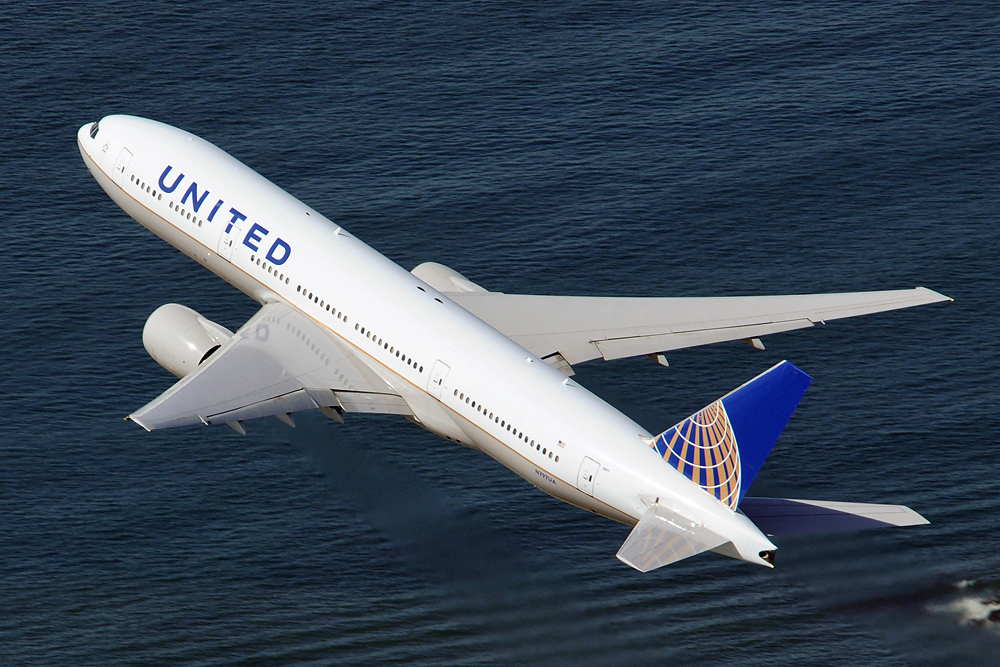The Federal Aviation Administration (FAA) is finalizing airworthiness directives for Boeing 777-200 aircraft equipped with Pratt & Whitney 4000 series engines. This new directive will lift the ban on those PW4000 powered Boeing 777s, including the one involved in a United Airlines engine failure shortly after takeoff from Denver in February 2021, scattering debris from the engine over the Broomfield neighbourhood.
Three Airworthiness Directives Required
The FAA said that the new directives were proposed in December after the in-flight fan blade failures occurred. The new directives require strengthening the engine covers along with the enhanced inspections of the engine fan-blade.
One of the directives requires installing debris shields on the thrust reverser inner wall, examining fan cowl doors for humidity ingression and repetitive checks of the hydraulic pump shutoff valves.
Another directive requires the modification of the engine inlet to withstand possible fan blade failure events. A third directive requires specific corrective actions depending on inspection results. These three directives will be effective in mid-April.
United Airlines Pratt & Whitney powered Boeing 777s to return to service
According to Reuters, United is the only U.S. operator of 777s with the PW4000 engine, and it has 52 of them in the fleet. A United spokesperson said that the Chicago-based carrier has already started the proposed modifications to resume flight operations.
“Many of the affected engines have already undergone these proposed modifications. We expect these aircraft to resume flying customers again soon.”
United Airlines Spokesperson
Last year, United Airlines Chief Commercial Officer Andrew Nocella had said that the airline was disappointed by the grounding of the PW4000 engines powered 777s.
“The 777 aircrafts that are grounded are large capacity domestic movers. And we used those for Hawaii and hub-to-hub. And so right now, we’re flying well below where we like to be in Hawaii. We really want those aircraft back.”
United Airlines CCO, Andrew Nocella
United Airlines Denver Incident
On February 20, 2021, a United Airlines Boeing 777-200 experienced a catastrophic engine failure shortly after takeoff from Denver International Airport. The Boeing 777-200, with registration N772UA, was operating a scheduled domestic passenger flight UA328, from Denver to Honolulu, when it suffered engine failure, showering debris over nearby cities.
Eyewitnesses recorded falling debris. Debris fell over suburban residential areas of Broomfield, Colorado, through the roof of a residential home. A parked vehicle was also significantly damaged by the debris.
After the aircraft suffered engine failure, the crew declared “Mayday” and returned to Denver for a safe landing on runway 26, some 23 minutes after departure. No injuries were reported among those 229 passengers and ten crew members on board.
As per the initial examination of the Pratt & Whitney PW4077 engine, the National Transportation Safety Board revealed the following facts:
- The inlet and cowling separated from the engine
- Two fan blades were fractured
- One fan blade was fractured near the root
- An adjacent fan blade was fractured about mid-span
- A portion of one blade was imbedded in the containment ring
- The remainder of the fan blades exhibited damage to the tips and leading edges
After the incident, the 777-200 series aircraft equipped with similar Pratt & Whitney PW4000-112 series engines were grounded. The PW4000-112 series engines were also equipped on some older 777s operated by Japan Airlines, All Nippon Airways, Korean Air, Asiana Airlines and Jin Air, alongside United Airlines. Boeing had stated that 128 of its Boeing 777-200 series aircraft were equipped with the PW4000-112 series engines.
Following the incident, global aviation watchdogs, including the British Civil Aviation Authority and Transport Canada, had banned PW4000-112-powered Boeing 777s from entering their airspace. The Japanese Ministry of Land, Infrastructure, Transport and Tourism grounded 32 Boeing 777 aircraft operated by JAL and ANA. Following the incident and grounding, Japan Airlines retired all of its PW-equipped Boeing 777-200s a year earlier than planned in March 2021.


